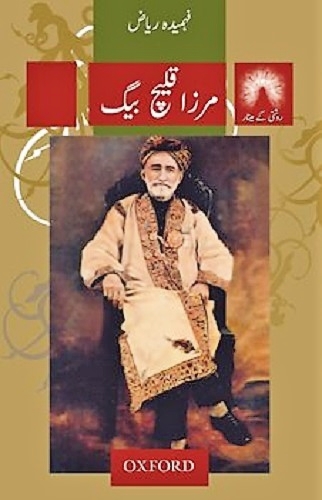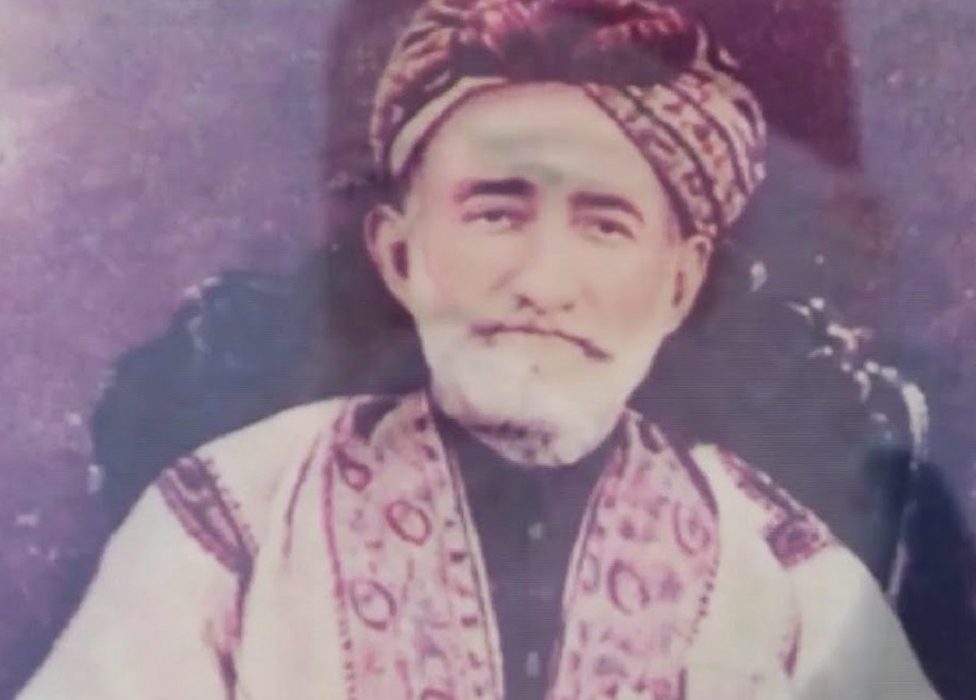Mirza Kalich Beg: The impressive genius I came to know while writing a thesis on Urdu

Suicide attack on mosque in Peshawar: 56 dead, over 190 injured
March 4, 2022
A holiday in Turkey and sad farewells after a year in Khairpur Mirs…
March 7, 2022Researcher Doğan Yücel wrote a portrayal of Mirza Kalich Beg, who is considered the founder of modern Sindh literature and whom Yücel came to know while writing his master’s thesis. Yücel explained about Kalich Beg’s work in disciplines other than literature and why he has been considered a genius.
In 2010, I started my master’s degree at the National University of Modern Languages (NUML) in Pakistan. The title of my thesis was ‘Comparison of the Turkish Words and Sentence Structures in Urdu and Four Major Local Languages in Pakistan with Turkish Language’. I compared the verb conjugations and sentence sequences of the five main local languages and also compiled the words they roughly borrowed from Turkish. One of the Sindhi dictionaries I bought back then was Lughat-e Latifi by Mirza Kalich Beg and first published in 1914. It was a small dictionary of 380 pages, but as far as I know, it is a first among the first Sindhi dictionaries. Who is this outstanding man of letters, then?
Mirza Kalich Beg is the founder of modern Sindhi literature cherished today by around 25 million speakers in Pakistan. Mirza Kalich Beg was born on October 4, 1853, in Tando Thoro, on the banks of the Phuleli canal, in Hyderabad (present Pakistan) under the British rule, and died on July 3, 1929. October is considered a unique month for the Sindhi language and literature. It is the month when the birth anniversary of this great author, known as the father of modern Sindh literature, is celebrated in Hyderabad.
Conferred with the ‘Qaisar-e-Hind’ medal and the title ‘Shams-ul Ulama’
Mirza Kalich Beg was a man of many talents. He was a dedicated public servant. He was also a well-known poet, playwright, and a one-man institution of Sindhi prose. As acknowledged in Sindh, he is one of the world’s most prolific authors also known as the Shakespeare of Sindhi literature. Mirza Kalich Beg wrote over 457 books in 43 disciplines, including physics, chemistry, biology, zoology, botany, Sindhi literature and anthropology. This great person, who spoke 25 languages including Sindhi, Persian, Arabic, English and Turkish, wrote his works in eight languages. His grandson, Mirza Aijaz Beg said his grandfather, as the founder of modern Sindhi literature, served the cause of the Sindhi language throughout his life. In his works, Mirza Kalich Beg dealt with human suffering, inhuman exploitation, and the human desire for progress and prosperity. In 1906, he was awarded the ‘Qaisar-e-Hind’ medal for his commendable work. In 1924, the British government conferred him the title of ‘Shams-ul Ulama’.

This intellectual genius devoted his life to developing Sindhi language and literature. He translated rare books from different languages and primary from Persian and English into Sindhi. Of his 457 books, 22 are on prose and poetry in Persian. He is also the first scholar to introduce comparative literature and initiate the method of literary criticism in Sindh. According to numerous ancient travel and history books such as Chechnameh, Tarikh-e Masumi and Tukhfat-ul Kiram, Sindh was one of the prominent centres of literature frequented by scholars from Iran, Iraq, Turkey and elsewhere. So much so that Sindh was also mentioned by Ferdowsi in his Shahnameh. Mirza Kalich Beg translated the Chechnameh, one of the famous travelogues, into Sindhi and facilitated future generations to read the history of their homeland. This is why, he is considered a great social reformer.
The value of the great genius was realized too late
Despite all these outstanding achievements, Mirza Kalich Beg did not receive the praise he deserved, even in the Sindh province, until recently. In recent years, besides introductory conventions, research on Mirza Kalich Beg’s contributions to literature, postgraduate and doctoral studies on his work, production of short-life documentaries to introduce him to the younger generations, reprinting the rare manuscripts of his works, collection of all materials relevant to his life and works in different libraries and museums by the Mirza Kalich Beg Chair and his family, it was decided to carry out academic works such as scanning the manuscripts for preservation and engaging the Sindhi Literature Authority and Sindhology Institute to assist the Mirza Kalich Bey Chair.
In addition, it was decided to include Mirza Kalich Beg’s autobiography in the four-year undergraduate program of the faculties of literature and to include his books in the curriculum. His autobiography ‘Sao Pan wa Karo Pano‘ and his novel ‘Zeenat‘ have been translated into English. Today, most of the author’s books have been scanned, transferred to online portals and made available to the researchers and enthusiasts. Sindh Institute of Music and Performing Arts (SIMPA) composed two of his Sindhi poems ‘Monkhay Kare Khuwar Wayo, Muhinjo Dildar Wayo‘ and ‘Sohni Sajan Tasveer Disi‘ and two of his Urdu poems ‘Tere Ishq‘ and ‘Ko Ana Sada Chahta Hon‘ into music.
The family’s roots go back to Georgia
According to his great-granddaughter Mehar Afroze Habib Mirza, her great-grandfather would rather read than play, even as a child. Memories of this great scholar and unique personality still live on in the heirloom residence in Tando Thoro. Mehar Afroze Habib Mirza’s great-grandfather’s library overflows with books. His writing desk, medal, and robe are heirlooms of his genius, academic work and service to the Sindh literature and the people of Sindh.
This great personality’s father had immigrated to Sindh from Georgia. The life of the Mirza family and their ties to Georgia are discussed in the book “A Georgian Legend: From the Caucasus to the Indus” written by Mehar Afroze Mirza Habib, Vice President of All Pakistan Women’s Association, in 2005.
Mirza Kalich Beg’s books include:
Maqalat-ul Hikmat
Khoodyari
Alamat-ul-Qur’an
Bagh ae Bayani
Hashrat-ul Arz,
Zameen Pokhin Jo Ilm ae Hunr
Keemya-e-Saaat
Dilaram
Zeenat: http://ebooks.rahnuma.org/1511348521-Zeenat.pdf.html
Lughat-e Latifi: https://archive.org/details/san_0439
Sao Pan Karo Pano: https://archive.org/details/san_0604
Sources:
- H. A. (2010, October 18). Tribute to Qaleech Baig & Shah Bokhari
- https://www.dawn.com/news/573156
- Imdad Ali Khushik (2019, July 4). Mirza Qaleech Baig remembered on his 90th death anniversary.
- Daily Times https://dailytimes.com.pk/423393/mirza-qaleech-baig-remembered-on-his-90th-death-anniversary/
- Dawn Newspaper (2009, October 6) Homage paid to Shamsul Ulema Mirza Qaleech Baig.
- Dawn Newspaper https://www.dawn.com/news/945479
- Dawn Newspaper (2008, December 17) SU to display Qaleech Baig`s literary works.
- Dawn Newspaper https://www.dawn.com/news/978428
- Wikipedia (2022, January 31). Mirza Qalich Baig https://en.wikipedia.org/wiki/Mirza_Kalich_Beg
- https://www.youtube.com/watch?v=osNlJMgN0bc (2022, January 31)





No Comment.